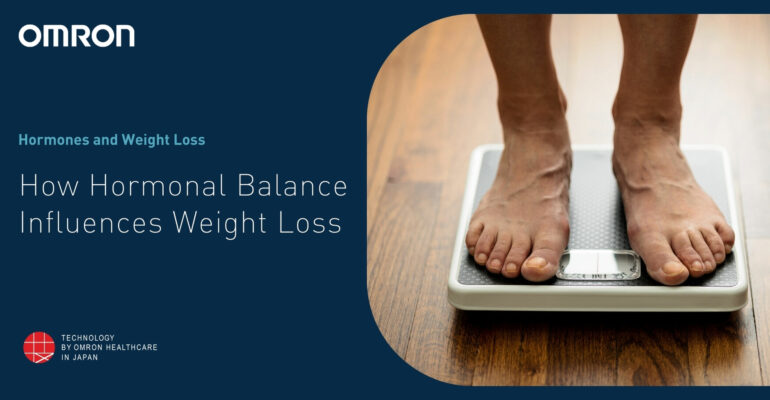How Hormonal Balance Influences Weight Loss
December 29, 2023 2024-03-13 18:21How Hormonal Balance Influences Weight Loss

How Hormonal Balance Influences Weight Loss
In the pursuit of weight loss, people often focus on calorie counting, exercise routines, and dietary choices. While these factors play a crucial role, one aspect that often goes overlooked is hormonal balance. Our hormones act as messengers, orchestrating various physiological processes, including metabolism and fat storage. Understanding how hormonal imbalances can influence weight gain and loss is key to developing effective strategies for achieving and maintaining a healthy weight.
The Hormonal Landscape:
Hormones are biochemical messengers produced by glands in the endocrine system, and they play a vital role in regulating various physiological processes. When it comes to weight management, hormones such as insulin, cortisol, leptin, and ghrelin take center stage. Insulin, for instance, is responsible for regulating blood sugar levels and promoting the storage of excess glucose as fat. Cortisol, often referred to as the stress hormone, can lead to increased fat storage, especially in the abdominal area, during periods of chronic stress.
Leptin and ghrelin, commonly known as the hunger hormones, regulate appetite. Leptin signals satiety to the brain, while ghrelin stimulates hunger. An imbalance in these hormones can disrupt the body’s natural hunger and fullness cues, leading to overeating and weight gain.
The Impact of Hormonal Imbalance on Weight:
- Insulin Resistance: One of the primary hormonal imbalances linked to weight gain is insulin resistance. This condition occurs when cells no longer respond effectively to insulin, leading to elevated blood sugar levels and increased fat storage. High insulin levels can hinder the body’s ability to burn stored fat for energy, making weight loss more challenging.
- Stress and Cortisol: Chronic stress can contribute to weight gain through the overproduction of cortisol. Elevated cortisol levels prompt the body to store fat, particularly in the abdominal region. Additionally, stress-induced emotional eating may lead to the consumption of calorie-dense foods, further exacerbating weight-related issues.
- Leptin Resistance: Leptin resistance occurs when the brain no longer responds to the signals of this hormone, creating a scenario where the body does not recognize when it’s full. This condition can lead to overeating and, consequently, weight gain.
- Ghrelin Imbalance: Disruptions in ghrelin levels can also contribute to weight-related challenges. An imbalance in this hunger hormone can lead to increased appetite and a higher likelihood of consuming excess calories.
Strategies for Restoring Hormonal Balance:
- Balanced Diet: A nutrient-dense, balanced diet is crucial for hormonal health. Consuming whole foods, rich in fiber, vitamins, and minerals, supports stable blood sugar levels and insulin sensitivity. Including sources of healthy fats and proteins in each meal can also help regulate hunger hormones.
- Regular Exercise: Physical activity plays a key role in hormonal balance. Regular exercise helps improve insulin sensitivity, reduce cortisol levels, and enhance the body’s ability to regulate hunger and fullness cues.
- Adequate Sleep: Quality sleep is essential for hormonal regulation. Lack of sleep can disrupt insulin sensitivity, increase cortisol levels, and interfere with the production of growth hormone, which plays a role in fat metabolism.
- Stress Management: Incorporating stress-reducing practices, such as meditation, yoga, or deep breathing exercises, can help lower cortisol levels and promote overall hormonal balance.
A Tool for Tracking Progress:
Monitoring your progress is a key aspect of any weight loss journey, and the Omron Body Composition Monitor proves to be a valuable tool in this regard. This advanced device provides insights beyond traditional scales by measuring various body metrics, including body fat percentage, visceral fat, skeletal muscle percentage, and more.
Understanding how these metrics change over time can offer valuable information about the effectiveness of your lifestyle changes and help you make informed decisions to further optimize hormonal balance. For instance, a reduction in body fat percentage may indicate improved insulin sensitivity, while an increase in skeletal muscle percentage suggests enhanced metabolism.
By incorporating the Omron Body Composition Monitor into your weight loss journey, you gain a comprehensive view of your body’s composition, allowing you to make adjustments to your lifestyle and exercise routine based on tangible data. This personalized approach can be a game-changer in achieving and maintaining hormonal balance, ultimately supporting your weight loss goals.
Conclusion:
By understanding the role of hormones such as insulin, cortisol, leptin, and ghrelin, individuals can tailor their lifestyle choices to promote equilibrium within the endocrine system. The journey to weight loss is a multifaceted process that requires a holistic approach encompassing nutrition, exercise, sleep, and stress management.






